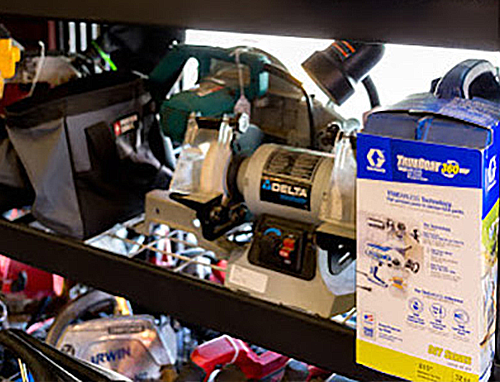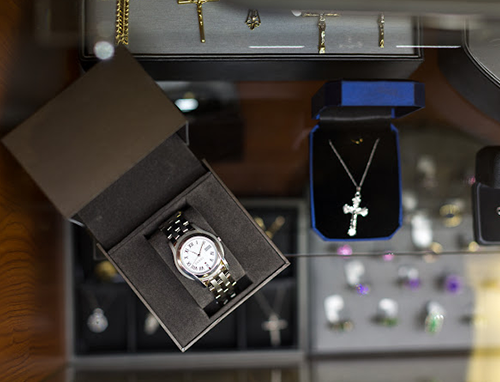
Introduction to pawning home goods
As a homeowner or renter, you may have heard of pawning home goods as a way to get some quick cash.
We will explore the reasons why people choose to pawn their home goods and furniture, expert tips for pawning your home goods with confidence, determining the value of your home goods, preparing your items for pawning, and key factors to consider when selling furniture. By the end of this article, you will have all the information you need to pawn your home goods with confidence and unlock their hidden value.
Reasons to pawn Home Goods and Furniture
There are several reasons why you might choose to pawn your home goods and furniture. One of the most common reasons is to get some quick cash to cover an unexpected expense, such as a medical bill or car repair. Pawning your home goods can provide you with the funds you need without having to take out a high-interest loan or max out your credit cards.
Another reason to pawn your home goods is to declutter your living space. If you have furniture or other items that you no longer need or want, pawning them can be a great way to free up space in your home while also getting some extra cash. This is especially helpful for those who are downsizing or moving to a smaller living area.
Lastly, pawning your home goods can be a way to test the market and see how much your items are worth. If you have valuable items that you think could fetch a good price, pawning them can give you an idea of their value, which can be helpful if you decide to sell them later on.
How to determine the value of your home goods
Determining the value of your home goods can be a bit tricky, as it depends on various factors such as age, condition, brand, and demand. Here are some tips to help you gauge the value of your items:
- Check online marketplaces: Websites like eBay and Craigslist can give you an idea of how much similar items are selling for. Look for items in similar condition and age to get the most accurate estimate.
- Consult pricing guides: There are pricing guides available for many types of items, such as antiques, collectibles, and furniture. These guides can provide you with a ballpark figure of your item's value.
- Get a professional appraisal: If you have a particularly valuable item or are unsure of its value, consider getting a professional appraisal. This can provide you with a more accurate and detailed assessment of your item's worth.
Preparing your home goods for pawning
Before you bring your home goods to the pawnshop, it's essential to prepare them properly to ensure you get the best loan amount possible. Follow these steps to prepare your items for pawning:
- Clean your items: A clean item will generally be more appealing to a pawnbroker and may fetch a higher loan amount. Be sure to dust, wipe down, and, if necessary, polish your items before bringing them to the pawnshop.
- Make any necessary repairs: Items that are in good working condition are more valuable than those that are broken or damaged. If your item needs minor repairs, such as tightening screws or replacing batteries, be sure to take care of these issues before pawning the item.
- Gather any documentation or accessories: If you have any documentation, such as receipts, warranties, or certificates of authenticity, be sure to bring these with you to the pawnshop. Additionally, if your item has any accessories, such as remote controls or power cords, make sure you include these as well.
Selling furniture: key factors to consider
When selling furniture, there are several key factors to consider to ensure you get the best value for your items. These include:
- Age and condition: The age and condition of your furniture play a significant role in determining its value. Antique or vintage pieces may be more valuable than newer items, especially if they are in good condition. Be sure to clean and repair your furniture before selling it to maximize its value.
- Style and demand: The style of your furniture and current market demand can also impact its value. Classic, timeless pieces tend to hold their value well, while trendy or dated items may not be as valuable. Research the market to determine if there is a demand for your particular style of furniture.
- Brand and quality: High-quality, well-made furniture from reputable brands is generally more valuable than cheap, mass-produced items. If your furniture is from a well-known brand or has a reputation for quality, be sure to mention this when selling your piece.
Conclusion and next steps for pawning with confidence
Pawning home goods and furniture can be an excellent way to unlock their hidden value and get some quick cash. By understanding the pawning process, researching the market value of your items, preparing your home goods for pawning, and considering key factors when selling furniture, you can pawn your home goods with confidence.
Now that you have all the information you need to pawn your home goods successfully, it's time to take the next steps. Begin by researching your items' value and preparing your items for pawning. With a bit of effort and knowledge, you can unlock the hidden value in your home goods and get the cash you need, when you need it.


